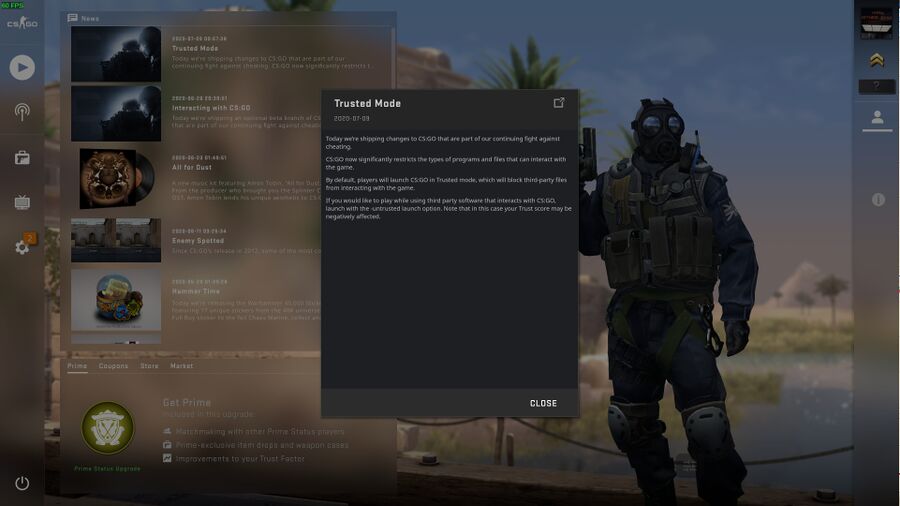Counter-Strike: Global Offensive Has A New Anti-Cheat Trusted Mode
The popular free (as in price, not free software) first person shooter Counter-Strike: Global Offensive from Valve has a new "trusted mode" anti-cheat system. The new "trusted mode" is active on the native Linux version of the game as of the latest update. Actual game-play does not appear to be affected, nor does game streaming using OBS.
written by 林慧 (Wai Lin) 2020-07-12 - last edited 2020-07-12. © CC BY

Counter-Strike: Global Offensive will inform you that a new "trusted mode" is active the first time you launch it after it has been updated.
Valve story is that the new Counter-Strike: Global Offensive anti-cheat "trusted mode" "significantly restricts the types of programs and files that can interact with the game". What, if anything, this means to those running the native GNU/Linux version that is available for free of charge in Valve's Steam game store and launcher is unclear.
The new "Trusted Mode" does not appear to affect the GNU/Linux version in any way what so ever. Recording and streaming games with OBS Studio works fine. Enabling a head-up display using the Mesa gallium functionality works fine. Frame-rates do not appear to be affected.
The concept of a "Trusted Mode" does imply that there is more Digital Restrictions Management (DRM) beneath the hood. That is never a good thing. It does not seem like it is a very bad thing either since the changes do not appear to have any practical effect.
It is possible to disable the new "trusted mode" security feature by launching the game with a -insecure switch. Some online features will not work when that switch is used.
Cheating is, apparently, a big thing in competitive games like Counter-Strike: Global Offensive so it may be good that Valve is taking steps to solve that problem. Not that we think it will help, those who are absolutely hell-bent on cheating in online video games will probably find ways around it.


Enable comment auto-refresher